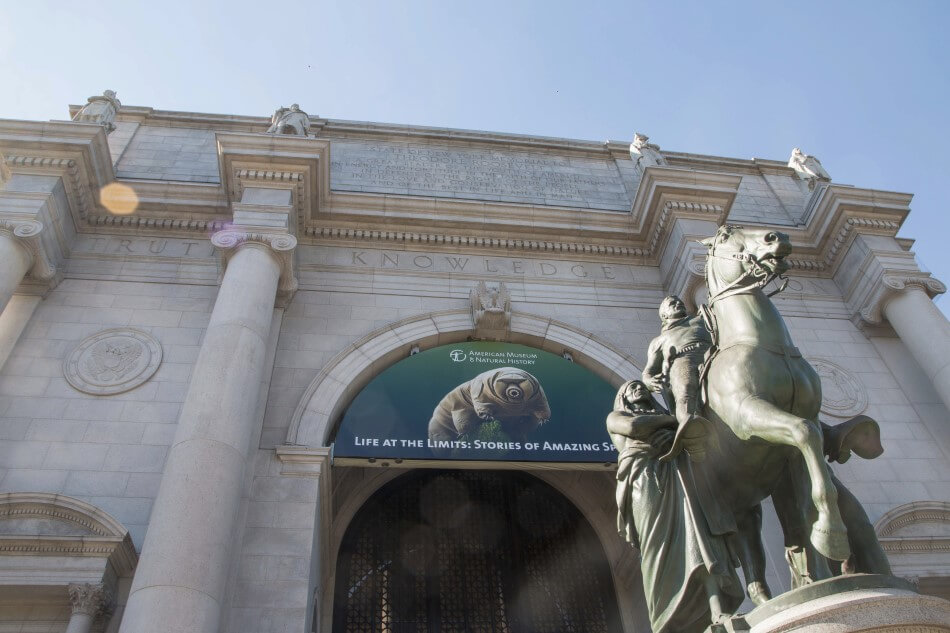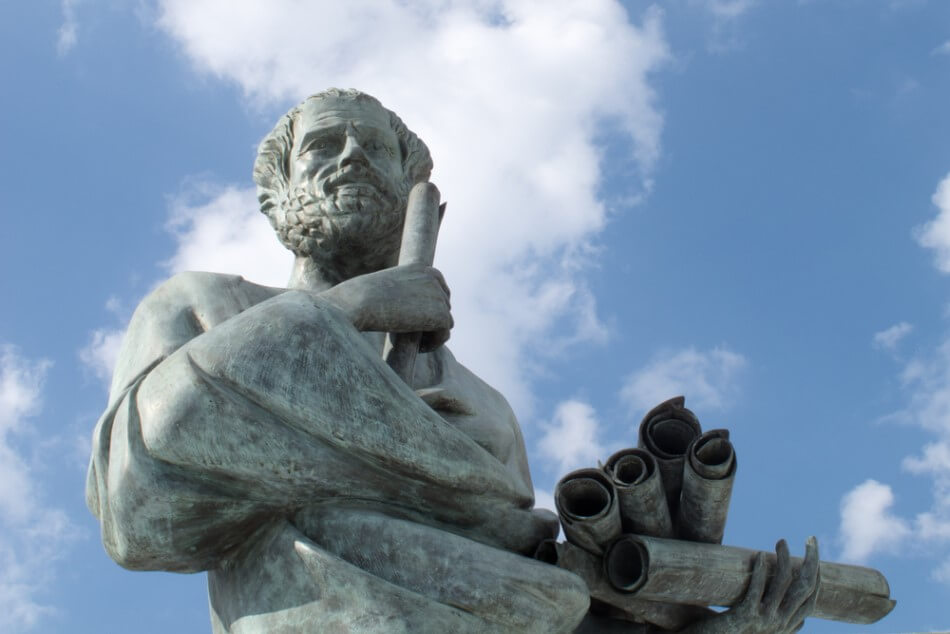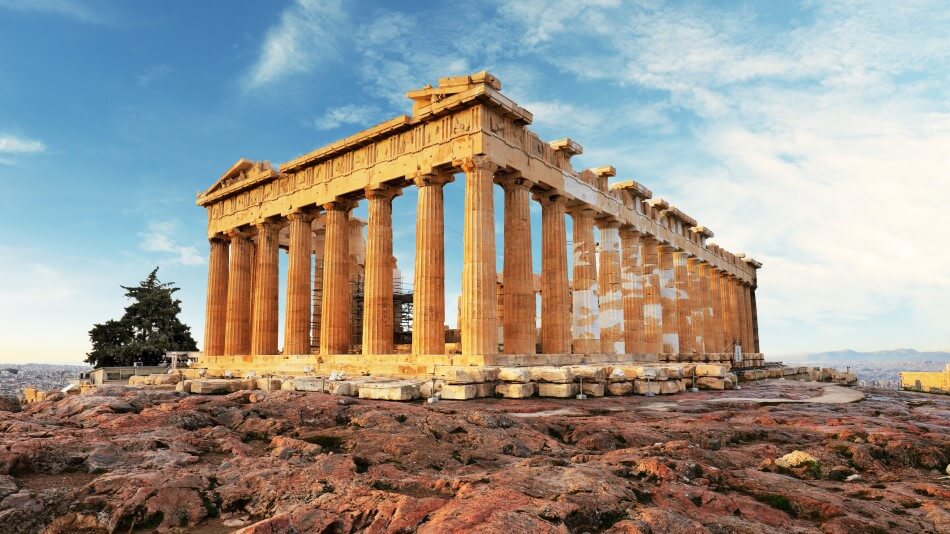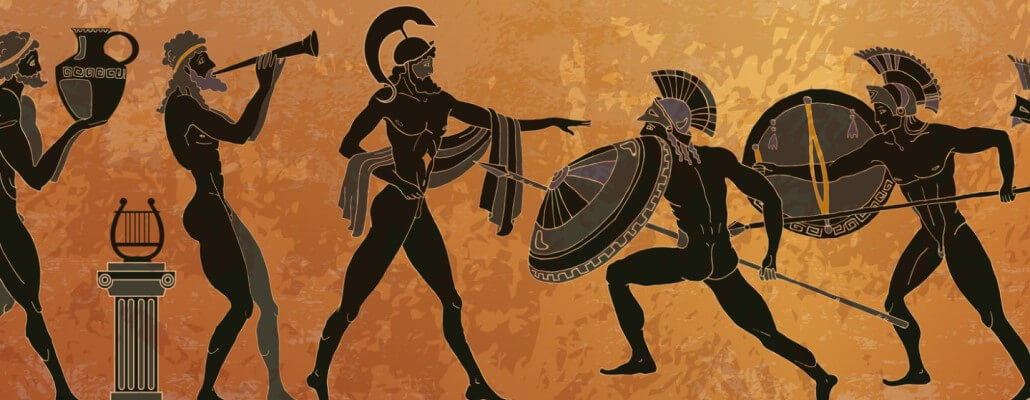The Greeks are greatly responsible for the turnout of human civilisation. Their contributions have been pivotal in shaping the fundamentals of language, science, arts, architecture, athletics, mathematics, medicine, politics, history and much more. Today, Greece is a country in Europe, but the people who inhabited it thousands of years ago are called the Ancient Greeks.
Here are some fun facts about this incredible civilisation:
1. The Greeks became part of the Roman Empire, which is when they came to be known as the Greeks.
Prior to that, the Greeks called themselves ‘Hellenes’ as the country of Greece was known as ‘Hellas.’
2. The Natural History Museum in New York is a great example of the Greek style of architecture.
The building is constructed according to the principles of symmetry and repetition donning columns, that are decorated with carvings.

3. Sport and competition was an important aspect of Greek culture.
The Olympic Games that we see today were conducted for the first time back in the 776 BC, at the Greek city of Olympia. Even back then the games were held every four years, just like the modern-day Olympics!
4. The Olympic Games were held by the Greeks to honour Zeus, King of the Greek gods.
With succession, events like discus, running, boxing and javelin were introduced in the games, and they had to compete naked. The Greeks would pray to Nike, the Goddess of Victory. Winners were awarded a crown of olive branches instead of a gold medal.
5. The Greeks introduced the Greek alphabet around 1,000 BC, which led to the invention of the concept of written vowels.
In fact, the Greek letters alpha and beta make up the word ‘alphabet.’
6. Ancient Greece can boast of many prolific writers, thinkers, and scholars.
Such as Socrates, Homer, Euripides, Aristotle and Plato. Aristotle was the first one to come up with the idea that the Earth is round.

7. Pheidippides ran 26 miles from Marathon to Athens to announce that the Persian army had been defeated by the Greeks in 490 BC.
This was when and how the marathon originated. After announcing the news, Pheidippides collapsed and died.
8. The first water mill is said to have originated in ancient Greece.
It was in the 3rd century BC, and it made it possible for food to be ground and produced as cereals and flour.
9. The alarm clock was invented by the ancient Greeks.
Plato is said to have used one of the earliest versions of the alarm clock.
10. Modern democracy is said to have originated in Ancient Greece.
They had elected assemblies to help them govern and the first democracy was in Athens in 5 BC. City-state Athens had a democratic government. People there made decisions by voting just like we vote to elect our government.
11. The Greeks had different Gods and Goddesses.
They believed they had human qualities, but also had more powers than mortals, and would live forever. 12 of the important gods and goddesses were said to have lived on Mount Olympus where they held discussions and resolved arguments.
12. Ancient Greece stretched as far as Italy, North Africa, and France.
This included some of the countries we know today as Turkey and Syria.
13. Ancient Greece was divided into city-states where each had their own laws and way of life, but they all spoke the same language.
Athens and Sparta are two of the most well-known city-states! ‘Polis’ is the Greek word for city-states. Words like ‘policeman’ derive from the word ‘polis’ which means ‘man of the city.’
14. Greece became a part of the Roman Empire when the Romans conquered Athens in 146 BC.
Greece was dominated first by the Roman Republic, and then by the Roman empire. Athens attempted to revolt against Rome, which resulted in Roman stateman, Sulla, instructing the ransacking of Athens. Many people were killed and monuments were destroyed.

15. Pots held a significance in Greek culture.
Pots were used for different things like carrying water in from a fountain in town, keeping perfume in, storing make-up, keeping and cooling wine, cooking and more. Greeks would paint pictures on the pots depending on what they were used for. For instance, toys would be drawn on pots used by children.
16. Greeks had homes with different rooms built around a courtyard in the middle.
Men and women had different sections of the house to themselves. The dining rooms were used by men to invite friends and spend time with them. Women had rooms in the back of the house where they would spin and weave and call their friends to spend time with.
17. Ancient Greek marketplaces were called Agora.
Similar to malls and shopping centres today, people would sell things there, buy food and meet friends.
18. The theatre was invented in Ancient Greece and the actors were only men and boys.
They would wear masks of sad and happy faces according to the character they were playing.
Ancient Greece FAQs
What are some fun facts about Ancient Greece?
The Ancient Greeks are responsible for many things we see today, such as the Olympics, democracy, clocks, gears, screws, plumbing and more.
What did Ancient Greeks eat?
For breakfast, Ancient Greeks often ate bread dipped in wine. It’s likely they dipped their bread in wine because the bread was hard, due to being made from barley. For lunch, again they would indulge in bread and wine, but also accompany it with things such as fish, olives and cheeses. For dinner they’d branch out further, enjoying eggs (from hen and quail), fish, vegetables (asparagus, cabbage etc.) and olives. The wealthy were usually the only ones who could afford meats.
What did Ancient Greeks wear?
Most men and women wore similar garments: a tunic and a cloak. They were made from wool or linen, depending on the time of year. The long tunics worn by women were called a ‘peplos’, often fastened at the waist with a belt. Tunics worn by men were called a ‘chiton’, and was sometimes shorter than the women’s.
What did children do in Ancient Greece?
Like children today, ancient Greek kids had toys and played games. When the boys reached the age of 7, they attended school, were they would learn math, reading and writing. If a girl was from a wealthier family, they may be educated too, but unfortunately most Ancient Greek girls stayed at home.
What did the Ancient Greeks invent?
The Ancient Greeks are responsible for many inventions, such as the alarm clock, plumbing, shower, gears, air and water pumps, bathtub, disability ramp, screws and more. They greatly influenced the shape of the world.
